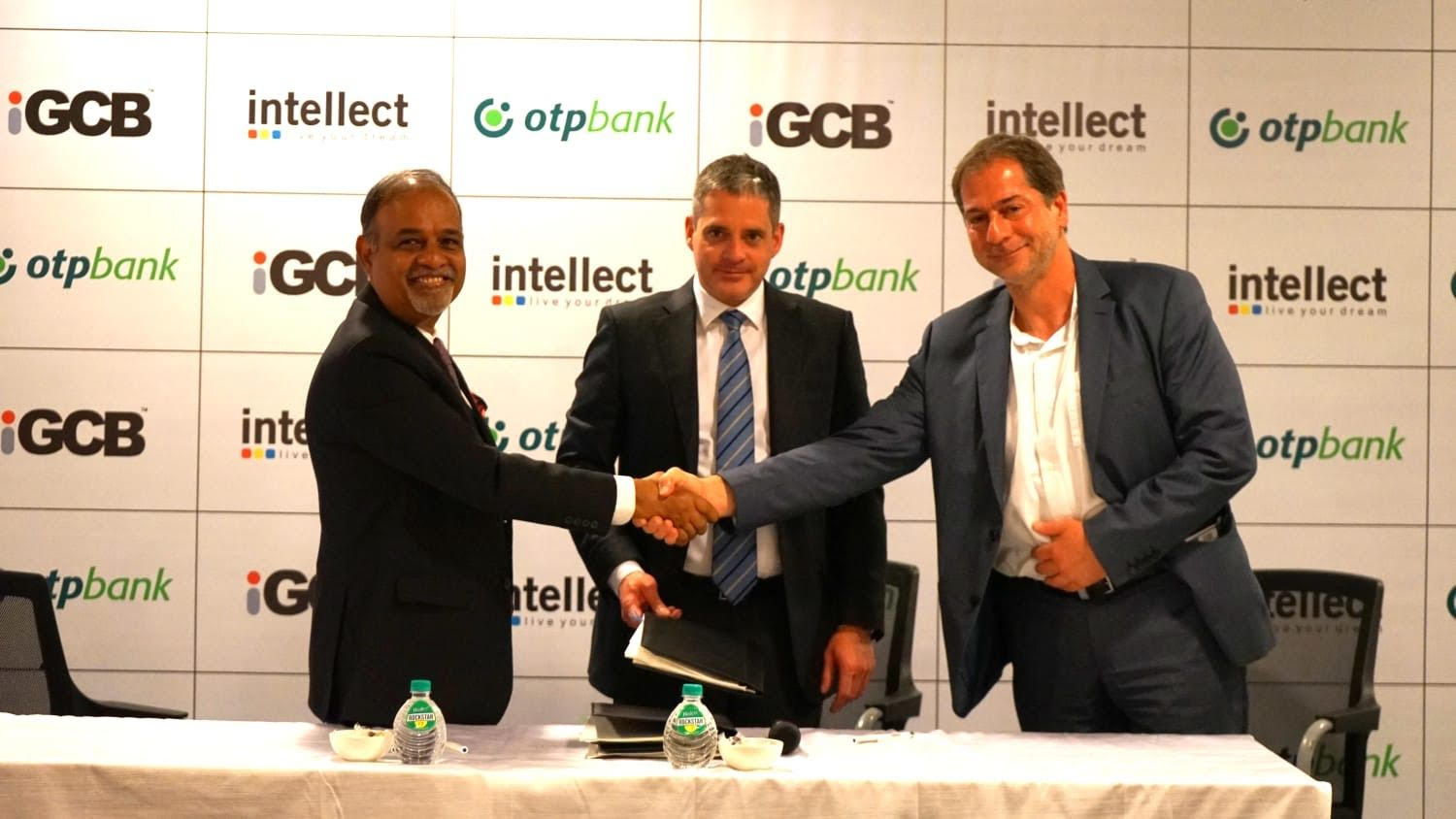Vol - 14 | July 2023
Foreword
Economies worldwide have been drastically altered over the past ten years by the shift toward a tech-dominated lifestyle. Technology advancements over the past few decades have caused a significant transformation in the financial world. There are five distinct technological “waves” that make up this transformation. Financial technology (fintech) products and services have gotten more complex over time, with each wave building on the one before it. These advancements have facilitated quicker transactions, more individualised customer experiences, and easier access to financial markets.
The newest float: rightciting phase of technological development in the banking sector is known as BankTech Wave 5. It signals the start of a new era of development and innovation that is revolutionising how banks operate and offer value to their clients. Architecture, microservices, composability, embedded AI, hyper-personalisation, and ecosystem building—must be prioritised if banks are to launch markets in the current digital era successfully.
By combining the three major technologies of events, microservices, and AI, Intellect 3.0 has invested more than Rs.600 crores in creating the largest Open Finance platform in the world, eMACH.ai, which is based on BankTech Wave 5. Leading this new wave of banking technology is eMACH.ai. In this latest edition of Intellect Edge, we are happy to share our next growth charter.
Cover Story
Intellect 3.0 – Our Next Growth Charter

Warm Regards,
Arun Jain
Chairman &
Managing Director of Intellect
I am pleased to share the progress of Intellect in a defining year of its journey. FY23 marks the culmination of Intellect 2.0 – the second phase of Intellect’s metamorphosis and growth. We had commenced this five year journey in FY19 soon after Lakshya 2018, our organisation wide visioning exercise. We focused on three priorities – Industrialisation of our Products and Processes, Building deep Customer relationships and building monetisation models for our rich IP.
During the Intellect 2.0 phase, we built a strong repository of IP commencing with Products for each of the Banking verticals and Insurance went on to upgrade some of those to Platforms, launched iTurmeric – our MACH composable platform for the design of Experience, Operations and Integration with the Ecosystem. We stepped up the investment in IP towards the Platformisation of our Products in the last year of Intellect 2.0 – FY23- and launched eMACH.ai – the MACH-compliant, open architecture-based, composable platform that is driven by Contextual Data & Embedded AI to support Flexible extensibility of applications – rich with over 285 Microservices, 200+ Events and 1214 APIs.
Externally, two key technologies were significantly impacting the Market – Cloud and Artificial Intelligence / Machine Learning Annual Report 2022 – 23 04 (AI/ML). We had an early mover advantage in both – given our ahead-of-the-curve Technology investments commencing from an SOA-based architecture in the mid-2000s, Digital 360 investments in the mid-2010s that not only focused on the external Experience layer but holistically on the Internal process orchestration as well, a bouquet of low code/ no code platforms, a well-defined Business architecture and frameworks for Delivery Excellence and Product Industrialisation / Maturity, we were well prepared as an organisation to take advantage of these technology shifts.
With the above Market trends and our readiness to capture the opportunity canvas, we hosted Lakshya 2023 earlier this year to envision the Intellect 3.0 journey over the next 3-5 years. We are upbeat and ebullient at the end of this exercise.
With the appropriate design of organisation, talent, systems & processes, business models, Technology & Infrastructure, Brand building and funding, will further accelerate our growth and profitability in Intellect 3.0. Read More
Recent Successes & Implementation

Press Release
OTP Bank chooses Intellect’s award winning...

Press Release
Aspen selects IntellectAI’s Magic Submission and...

Press Release
Intellect Global Consumer Banking launches Open...

Press Release
Union Bank of India partners with...

Press Release
WealthForce.AI powered by eMACH.ai wins big...

Press Release
IntellectAI powered by eMACH.ai named on...
Intellect in the News
Explore our resources to see proof of the value we add to our customers’ operations and growth journeys.

News
Fintech or TechFins: Two Sides of the...

News
The Fifth Wave: Cloud Computing, Open Finance...

News
Open Finance is changing the way we...

News
The rise of Open Finance enabled Retail...
Industry Watch
Stay up to date with what is happening in the world of FinTech, with the latest research and articles.
Financial services unchained: The ongoing rise of open financial data
Banks hold a record of much of what we spend, save, and borrow-from electricity bills and mortgage payments to our weekly spend on fuel and coffee. Now, some of that customer data is being shared with third parties in a global movement known “as financial data” (sometimes referred to as “open banking.”) Roughly half a decade in the making, it’s unlocking a wave of digital financial innovation and likely disruption. Brought on by a combination of government regulation and market forces, open financial data allows an expanding universe of players-both financial and non-financial-to access customer accounts and data affords greater flexibility in how their money is managed, allowing, for instance, better visibility of accounts and more convenient access to payments.
Open Banking and Open Finance Use Cases: Building Blocks of a Robust Open Financial Ecosystem
The financial landscape constantly transforms, making the modern world closer to a digitally dominated future. As the economy boosters, SMEs choose the approach to strive and develop in this new digital realm. The World Bank reports that SMEs represent 90% of businesses and more than 50% of employment worldwide. In the wake of a post-Covid push for digitalisation, SMEs have started to adopt and implement several new technologies into their strategy, ranging from AI automation to Open Banking and Open Finance-enabled solutions, in a bid to streamline their growth.
From open banking to open finance
It’s becoming a cliché to say that the future of finance is digital. But there is no doubt that the digital transformation of financial services we have experienced over the last few years has been profound. Technological innovation in finance is far from new. But investment in new technologies has increased substantially in recent years, and the pace of innovation shows little sign of slowing. Customers now routinely interact with their banks using mobile technology, which would have been unthinkable even a few years ago. The COVID-19 pandemic has, of course, accelerated this trend. Technology has much more to offer consumers and businesses, and we should proactively embrace digital transformation while mitigating potential risks.
Finastra global survey shows evolution of Open Banking and growing appetite for open finance
Finastra research reveals that Open Banking is now universally and unequivocally regarded as a key part of a bank’s landscape, with 99% of respondents considering it either a ‘must have’ or ‘important’, up from 94% last year. The proportion of global financial institutions that consider it a ‘must have’ has risen to 61%, a notable increase from 2021 (51%). The ‘Financial Services: State of the National Survey 2022’ finds that views on open finance are also maturing with some 94% of financial institutions regarding it as either a ‘must have’ or ‘important’ in the context of data sharing (up from 91% in 2021).

 Read More
Read More